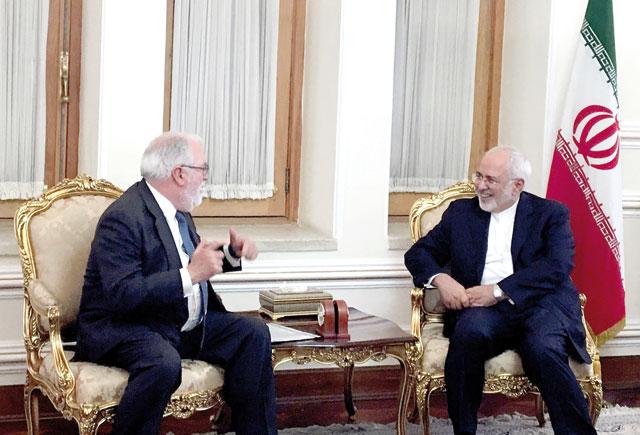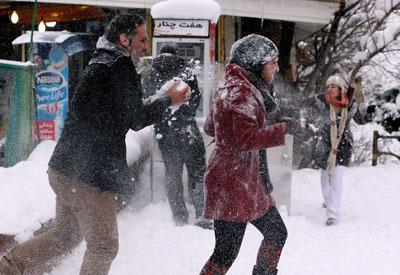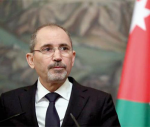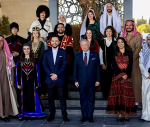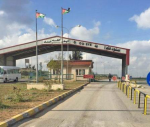BRUSSELS — France is sending business executives by the planeload to Iran. German and Dutch entrepreneurs are taking courses on how to close a deal in Tehran, and carmakers are drawing up plans for investment.
Europe’s business community is abuzz with preparations to rush back into Iran, an economic powerhouse in the Middle East, as some sanctions are suspended. And the interest is welcome — Iran is desperate to revive its economy after years of international isolation.
Under a deal with world powers, Tehran has agreed to curb its nuclear programme in exchange for some sanctions relief and the unfreezing of about $4.2 billion in overseas assets. Iran and world powers now have six months to conclude a permanent deal.
As always, in business, it’s about getting in first.
Iranian President Hassan Rouhani and his Foreign Minister Javad Zarif arrived Wednesday at the World Economic Forum in Switzerland’s Davos ski resort to meet with the world’s business elite, likely to discuss trade opportunities.
More hand shaking will take place soon thereafter in Tehran, when France’s business lobby group flies in executives representing about 100 firms for “exploratory” talks to take advantage of the sanctions’ suspension, an official with the organisation said.
Competitors are doing the same, so firms from the oil and gas sector, carmakers and other manufacturing companies want to move quickly, added the official, who spoke on condition of anonymity because the subject remains sensitive within governments.
“Everyone is in the same state of mind,” she said.
The opportunity
For businesses, getting into Iran is a chance not to be missed. The country boasts a well-educated population of about 75 million and some of the world’s largest oil and gas reserves, much of which is still unexplored due to decades of sanctions since the 1979 Islamic Revolution.
European countries have historically strong trade ties with Iran — more so than the US, which has had tougher sanctions in place for longer. European sanctions only began in limited form in 2007.
The recent, more punitive measures had caused Iran’s currency to tumble while unemployment soared and ballooning inflation ate up the people’s purchasing power. This week, some sanctions were lifted on the export of petrochemical products, shipping, insurance and the trade of precious metals.
The possibilities for growth are obvious judging by how much trade has fallen. Imports by the 28-nation EU, Iran’s biggest trading partner, plunged from 16.5 billion euros ($22 billion) in 2011 to 5.6 billion euros in 2012 and a mere 395 million euros in the first half of 2013.
Exports from the bloc to Iran dwindled from around 11 billion euros to 7.4 billion euros in 2012.
Executive interest
Among the first signs that business is ready to resume is the surge in demand for flights.
Austrian Airlines last week announced it will resume five weekly flights to Tehran, and its parent company Lufthansa said it’s thinking about adding more seats to its daily flights. Turkish Airlines, which serves six Iranian destinations, is seeking permission to increase frequencies.
Even though there are fears that sanctions could go back up when the current deal expires in six months, companies are upbeat.
“Optimism is predominating that there has finally been something of a relaxation in political relations and, therefore, in business possibilities,” said Volker Treier, head of trade relations at the Association of German Chambers of Commerce.
The association last week held an event on doing business in Iran and executives “filled the room very quickly,” Treier said. The sectors represented included machinery, vehicle production, food, medical technology and pharmaceuticals.
In the Netherlands, the Dutch ambassador to Iran, Jos Douma, last week held what he called a “speed-date session” with companies interested in getting back into business with Iran.
One focus was to export spare parts for Iran’s aging planes and agricultural products. “They need all kinds of things,” he said.
Oil
For foreign firms, the biggest prize in Iran is undoubtedly its sanctions-crippled oil and gas sector.
“Iran clearly has huge resources. Its production has been curtailed in recent years,” oil company BP said in a statement. “It clearly has a lot of potential.”
It cautioned, however, that “this is likely to be a very complicated political process.”
Iran’s oil and gas industry is in poor shape since sanctions often made it impossible to upgrade production sites. Iran also needs to modernize its business laws, said Howard Rogers, the director of the Natural Gas Research programme at the Oxford Institute for Energy Studies.
Other hurdles include the tight sanctions on financial transactions, which mostly remain in place and make financial transactions difficult.
Considering the big sums involved in oil production, companies will be cautious. While major players such as France’s Total, Anglo-Dutch Shell or Italy’s Eni are keen to get back in business, they are for now sticking to a wait-and-see approach until the sanctions will be lifted permanently.
“My expectation would be a rush of large players if sanctions come down,” said Rogers.
Coincidently, Iran’s Rouhani and Zarif sat next to the chief executive of Total SA, Christophe de Margerie, at a session in Davos Thursday.
Iran’s oil minister is also holding meetings in Turkey this week to seek closer cooperation. As an initial step, Turkey hopes to boost crude imports by about a third.
Cars
The other big opportunity is Iran’s auto market, which had been important for European manufacturers before the sanctions hit.
France’s PSA Peugeot Citroen and Renault, in particular, stand to gain from renewing their once-sizeable Iran activities.
As recently as 2011, Peugeot sold 455,000 cars in Iran, making the country its second-largest market after France. The company is now following the situation with interest, said spokesman Pierre-Olivier Salmon.
“The group has renewed contacts to prepare a possible resumption of activities with Iran,” he added.
Iran’s car industry is ready for investment. Its plants are running far below capacity, parts are scarce and some 100,000 jobs have been cut since the biggest sanctions took effect. Iran Khodro, the country’s biggest carmaker, plans to engage in new joint projects with foreign carmakers.
But as in the oil sector, carmakers want confirmation that the sanctions will not come crashing down again and that financial transactions will be easier.
Renault CEO Carlos Ghosn views Iran as the most important auto market in the Middle East, but renewing activities there would require a further loosening of financial sanctions, spokesman Bruno Moreau said. Renault sold 100,000 vehicles in Iran in 2011 before writing the business off when sanctions hit.
Analyst Michael Robinet, managing director at IHS Automotive, said the potential size of the Iranian market means international automakers will act as soon as they feel the thaw in relations with the West will last.
“If they do detect that there is a longer-term view that the government wants them there, and is willing to work with the sector, then I think you will start to see vehicle manufacturers move into Iran very quickly,” Robinet said.


